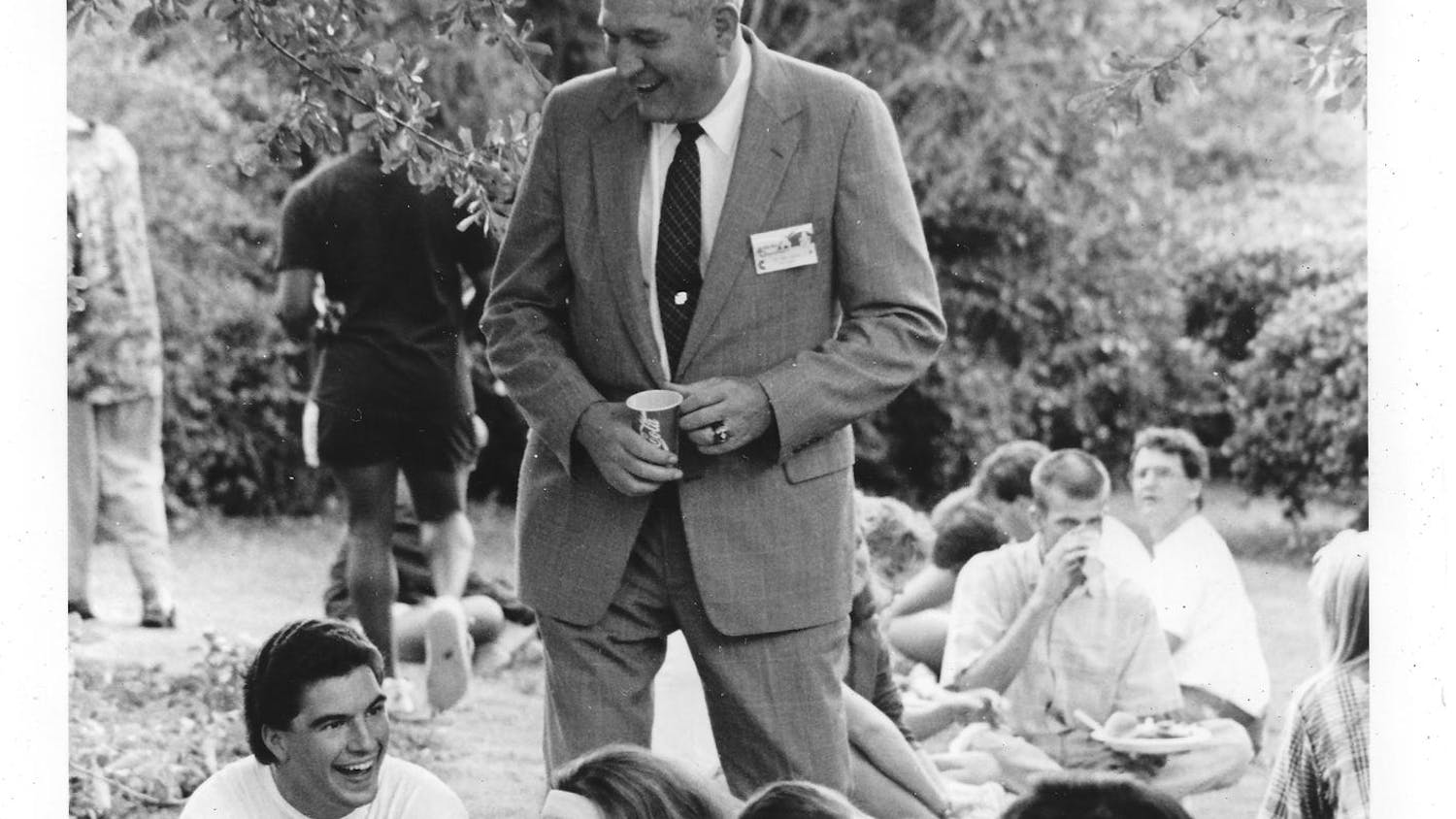Every spring, the softball and baseball teams take to their diamonds. However, those are not the only teams vying for a national title berth in the spring.
Floating on a boat with a fishing pole in hand each spring, the Auburn University Bass Fishing Team looks for the same thing every Auburn team looks for at the start of the season: a national title berth and victory.
Although the team is not officially a team, but a club, it goes through similar processes as other sports when it comes to trying out and earning playing time, or fishing time, in this case.
“We don’t have scholarships that I know of, or at least not yet, so essentially it’s just a club, and you go and sign up for it,” said Chad Matthews, freshman in fisheries and angler. “However, at the beginning of the season, we have five qualifiers, and you fish those qualifiers. And each qualifier, depending on what place you come in, you earn a certain number of points.”
An angler is a fisher who uses a hook and line.
Following the five qualifiers, the club coach takes the top 12 fishermen to the large national tournaments usually sponsored by BoatUS, the Bass Angler Sportsman Society or the FLW College Series, exposing the fishermen to a wide variety of tournament types and conditions.
In a big fish tournament, anglers are allowed to catch as many fish as they want and keep the biggest one, releasing the others before returning to the dock to weigh in. In this type of tournament, having the biggest fish usually means going home with quite the payday.
“If you have the biggest fish, you can end up winning a cash prize or a boat or something of that sort depending on the sponsors for that tournament,” Matthews said.
However, in a typical tournament, there is a five-fish limit. In other words, anglers are allowed to catch as many fish as they like but are only allowed by rule to bring in the five biggest fish to weigh in.
At the end of the tournament, anglers add up all of their weights, and whoever has the most weight wins.
In these tournaments, fishing usually begins at “safelight,” or when the sun comes up, and ends around 3 p.m. as the anglers return for the final weigh-in of the day.
While the team has sponsors in most areas such as reel sponsors, rod sponsors and clothing sponsors, it does not mean they receive merchandise like the football or basketball team. Instead, most of the supplies traveled to Auburn with the angler.
“As far as boats go, most people bring them from home,” Matthews said. “It’s really just whatever you can bring from back home.”
Seeing as Auburn does not give scholarships for fishing, one would think schools that offer full-ride fishing scholarships would easily out-fish the rest of the pack.
However, according to Murphy Klumpp, senior in marketing and Auburn angler, the scholarship side of fishing has evened out over the last few years.
“In the years past, yes, scholarships made a big difference,” Klumpp said. “But as of right now, no, it doesn’t make a difference. Since everyone has teams, it really doesn’t make a difference because everyone brings in their top guys. You know if you want to fish in college, you’re going to pursue it 100 percent.”
Ranked third nationally in collegiate fishing, the Auburn University Bass Fishing Team doesn’t let scholarships affect it, as it dominated the field a number of times this year, according to Matthews and Klumpp.
“We have remained dominant,” Klumpp said. “We have been a pretty good team for the past five years or so, and I think it’s going to continue that way with the guys we have currently and who is going to be coming up and coming into school soon.”
Do you like this story? The Plainsman doesn't accept money from tuition or student fees, and we don't charge a subscription fee. But you can donate to support The Plainsman.




